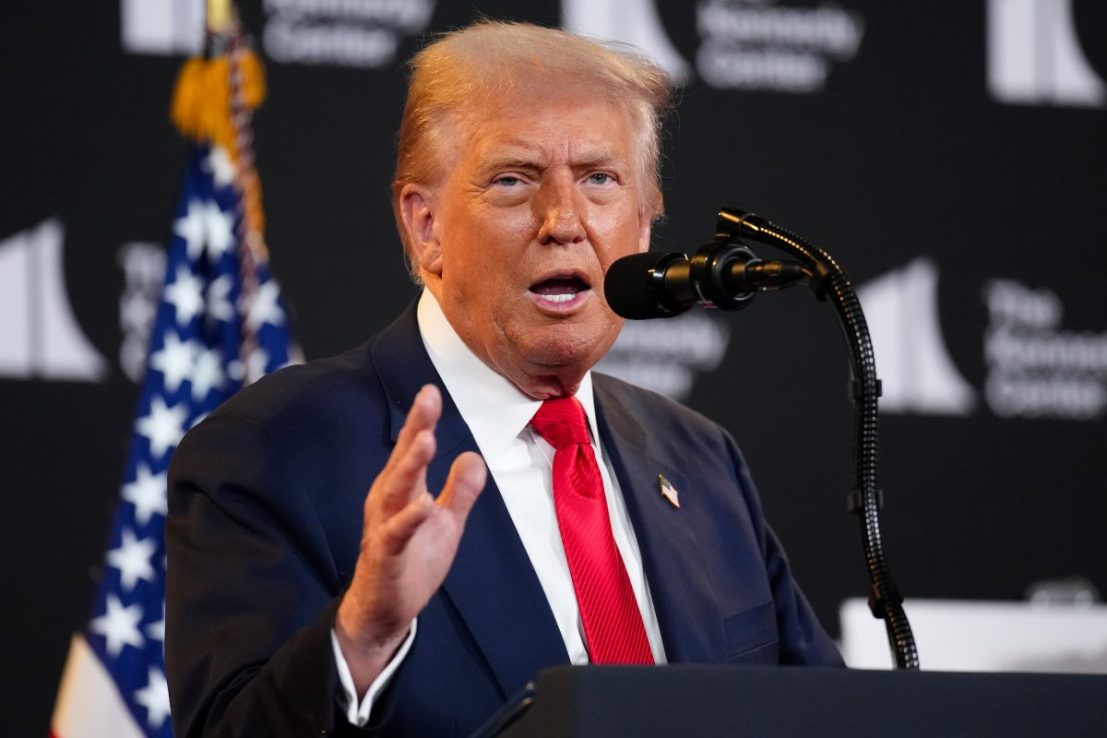
President Donald Trump has said he will slap an additional 100 per cent tax on Chinese imports by 1 November or sooner spiking recession fears after global markets tumbled.
Taking to his Truth Social platform, Trump cited the export controls placed on rare earths by China as the reason for the fresh levy.
The President said: “Starting November 1st, 2025 (or sooner, depending on any further actions or changes taken by China), the United States of America will impose a Tariff of 100 per cent on China, over and above any Tariff that they are currently paying.”
The move has spiked fears that echo concerns in the fall out of Trump’s ‘Liberation Day’ levies in April, where investors feared a recession was on the horizon.
Earlier this year, when concerns of a recession were raised Trump responded: “I hate to predict things like that. There is a period of transition, because what we’re doing is very big.”
The new levy will also fall on top of the 30 per cent tariff already heaped on Chinese goods by Trump’s administration.
Trump’s new tariff salvo sends shivers through markets
The latest trade offensive from the White House sent jitters through global markets.
The FTSE 100 fell sharply into the red on close, with a 0.9 per cent loss at 9,427.47. Ahead of Trump’s announcement the index had traded as high as 9,519.96.
The sell-off spread to continental Europe where on Friday, the Cac 40 in Paris and Germany’s DAX closed down 1.5 per cent.
On Wall Street, the S&P closed down 2.7 per cent and the Dow Jones 1.9 per cent.
Meanwhile, the tech-heavy Nasdaq slumped 3.5 per cent.
James Reilly, senior markets economist at Capital Economics, said: “Even after tumbling [Friday] amid US-China trade tensions, the S&P 500 remains close to its all-time high.
“That’s despite investors seemingly believing that the risks around US inflation are increasingly skewed to the upside and that a US recession is more likely than not over the coming year or so. If expectations shift toward the more benign outcome we anticipate, that could be a tailwind for stocks.”
The market tension comes amid major warning signs that global markets are due a “sharp correction” due to the ballooning valuation of tech equities.
Jamie Dimon, the boss of banking juggernaut JP Morgan, joined a chorus of calls sounding the alarm on the AI bubble this week.
Dimon said there was “a lot of issues that we don’t know how they’re gonna sort out”.
“So I say the level of uncertainty should be higher in most people’s minds than what I call normal.”
The banking chief’s warnings shots followed the Bank of England and IMF raising concerns on the AI stock market bubble.
The central bank’s Financial Policy Committee said the current state was “comparable to the peak” of the dot com bubble, which began in 1995 and burst five years later, triggering steep losses for investors.
“A sharp correction could interact with vulnerabilities in the system of market-based finance, adversely affecting the cost and availability of finance for households and businesses,” it added.







